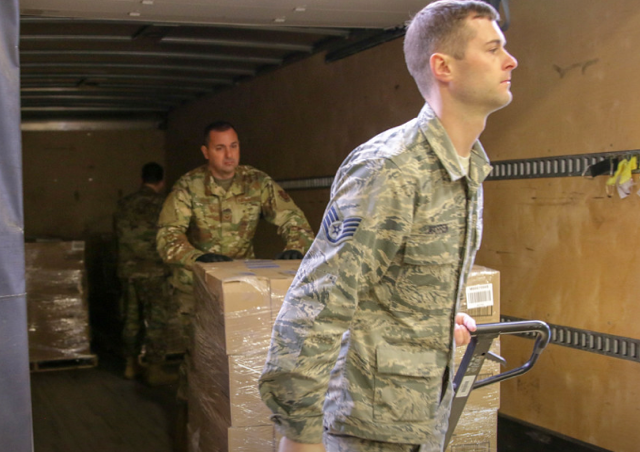North Carolina government has been taking numerous simultaneous steps to address the threat of the coronavirus – and that’s turning out to be a major multi-front war for state health officials and others leading the response.
By Friday, April 3, the state was reporting well over 2,000 confirmed cases of the virus – based on about 32,000 tests performed – and, by Saturday, April 4, the death toll had surpassed 24 victims and was continuing to grow.
In order to keep those numbers from skyrocketing, and to better manage the response and the fallout from the pandemic, the state has taken a variety of steps.
On April 3, for instance, members of the NC National Guard, the NC Department of Public Safety and NC Emergency Management delivered medical supplies from the Strategic National Stockpile to destinations around the state. Nationally, and across North Carolina, there has been growing concern about medical professionals lacking the protective gear and other tools they need to fight the virus. Distributing these supplies from the stockpile before the problem gets worse in the state is meant to help mitigate any shortages.
Also, each afternoon recently, NC Governor Roy Cooper, NC Department of Health and Human Services (NC DHHS) Secretary Mandy Cohen and other state officials involved in the response have held “media availability” sessions to keep the public informed of all matters related to the coronavirus.
The state has also widely publicized new food and nutrition benefits as well as the availability of other resources for economically challenged state residents during the COVID-19 pandemic – and has made that information accessible in Spanish through a video message from NC DHHS Latino Ombudsman Rogelio Valencia.
In addition, to help the many state residents who are now out of work or soon will be, utility companies in North Carolina have been prohibited from disconnecting people unable to pay during the crisis.
The statewide Stay at Home order directs people to stay at home except for essential activities which include for health and safety, for necessary supplies and services, for outdoor activity, for certain types of work, to take care of others, place of worship, to receive goods and services, place of residence, and volunteering. Gatherings of more than 10 people are banned, except at airports, bus and train stations, medical facilities, libraries, shopping malls and center or at any essential business.

